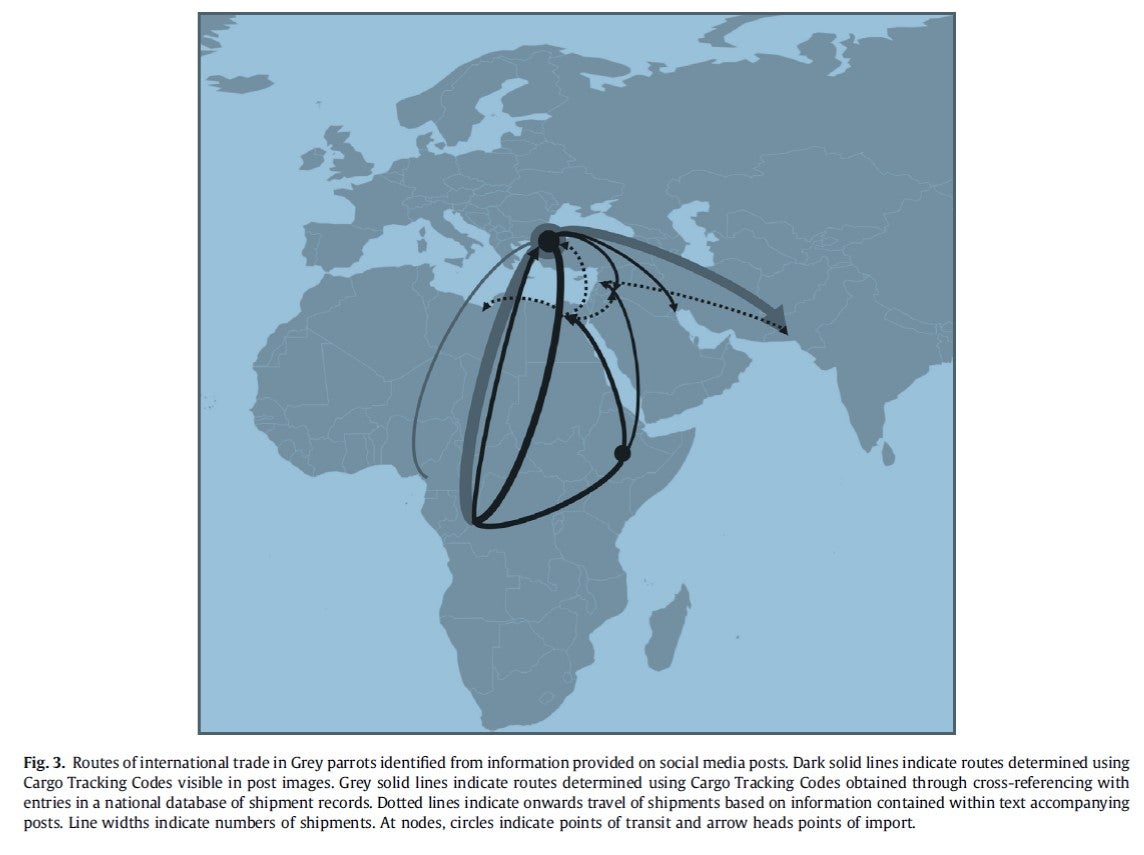Poachers driving African parrots to extinction in spiralling ‘exotic’ pet trade, investigation finds
New video reveals how poachers cram birds into crates to be sold to Asia and Middle East
Your support helps us to tell the story
From reproductive rights to climate change to Big Tech, The Independent is on the ground when the story is developing. Whether it's investigating the financials of Elon Musk's pro-Trump PAC or producing our latest documentary, 'The A Word', which shines a light on the American women fighting for reproductive rights, we know how important it is to parse out the facts from the messaging.
At such a critical moment in US history, we need reporters on the ground. Your donation allows us to keep sending journalists to speak to both sides of the story.
The Independent is trusted by Americans across the entire political spectrum. And unlike many other quality news outlets, we choose not to lock Americans out of our reporting and analysis with paywalls. We believe quality journalism should be available to everyone, paid for by those who can afford it.
Your support makes all the difference.Environmentalists have warned that endangered parrots are being driven towards extinction after an undercover investigation discovered birds being increasingly trafficked for the lucrative “exotic” pet trade.
New video evidence reveals poachers trapping African grey parrots and cramming them into crates to be flown abroad.
The multi-billion-pound industry is fuelled by buyers in Asia and the Middle East who prize the birds for their intelligence and mimicry abilities.
The filmmakers saw hunters using one bird as bait to lure others, stuck with glue, before the group is taken and their feathers hacked off to prevent them escaping.
Three in four African greys suffocate or die of starvation or disease in transit, the investigators found.
They say both the legal and illegal trade in the birds has caused a “catastrophic” drop in numbers, with up to three million poached over 40 years and a fall of up to 79 per cent in 50 years.
The internet has enabled trade in wild animals to flourish, and the African grey parrot is one of the world’s most illegally trafficked birds.
In August, more than 60 were found dead after being flown on Turkish Airlines between Kinshasa and Kuwait via Istanbul, according to World Animal Protection (WAP).
The charity’s investigators claim the airline and its cargo carrier have been used to transport wild-caught African greys on flights from the Democratic Republic of Congo (DRC), Nigeria and Mali.
“Lack of staff training and insufficient checks by Turkish Airlines are contributing to the trafficking of these parrots, despite having signed a royal wildlife protection declaration led by Prince William,” WAP said.
The airline did not respond to requests by The Independent to comment.

It is estimated that a fifth of wild African greys are taken for the pet trade each year.
Populations have tumbled by 99 per cent in Ghana and are now extinct in Togo.
Those that do survive the journeys are denied their freedom and often poorly fed, WAP believes.
Its report says most online importers were based in western and southern Asia and the Middle East, including Turkey, Pakistan, Jordan and Iraq.
The research looked at social media posts featuring cargo information, finding 13 originated in the DRC, one in Cameroon and one in Egypt. Turkish Airlines carried all but one shipment.
The research also found at least three out of four snakes, lizards, tortoises and turtles die within one year in the home.
“Keeping wild animals as pets is cruel, and the journey they endure is perilous,” the report says.

Join our commenting forum
Join thought-provoking conversations, follow other Independent readers and see their replies
Comments